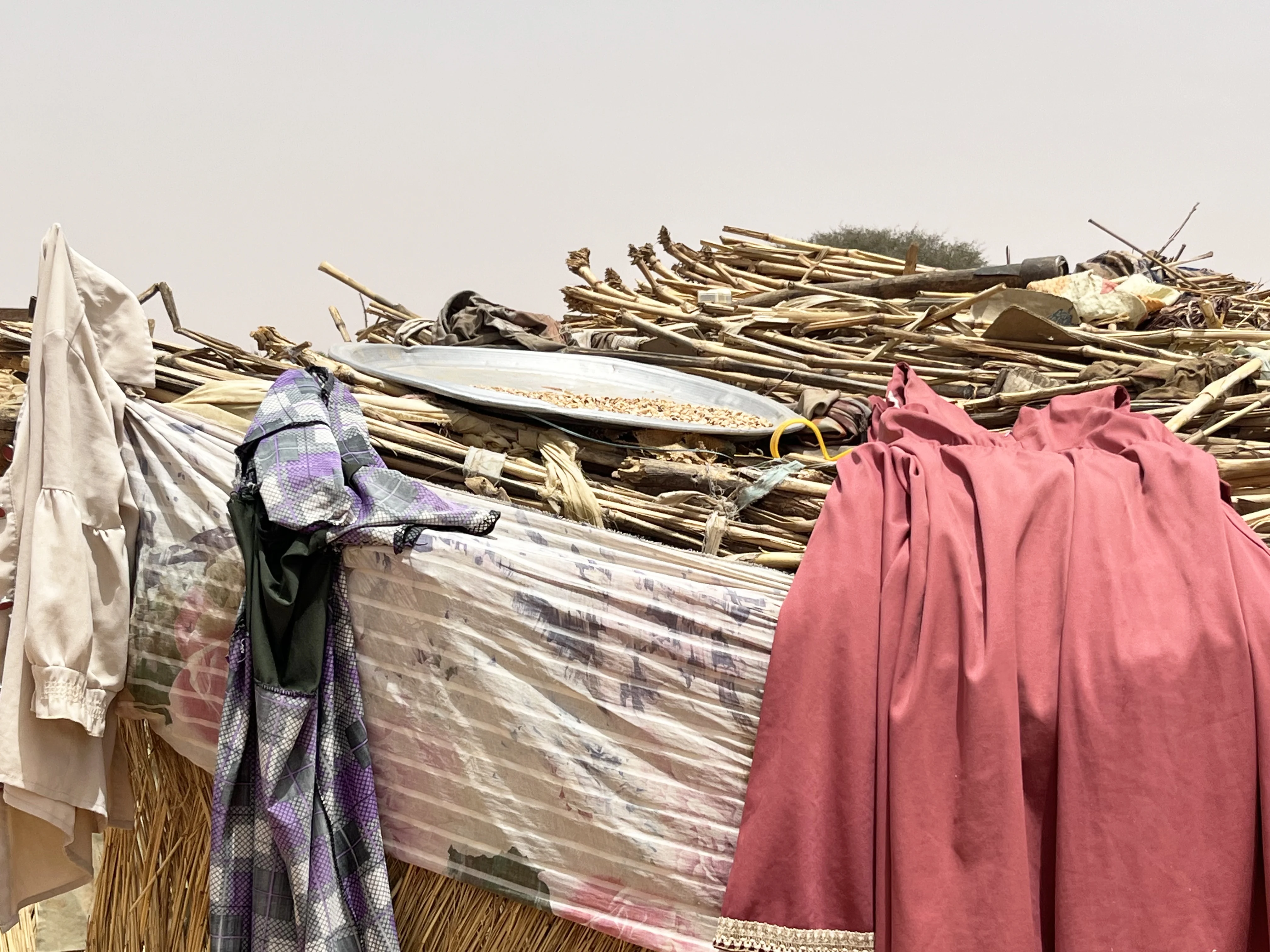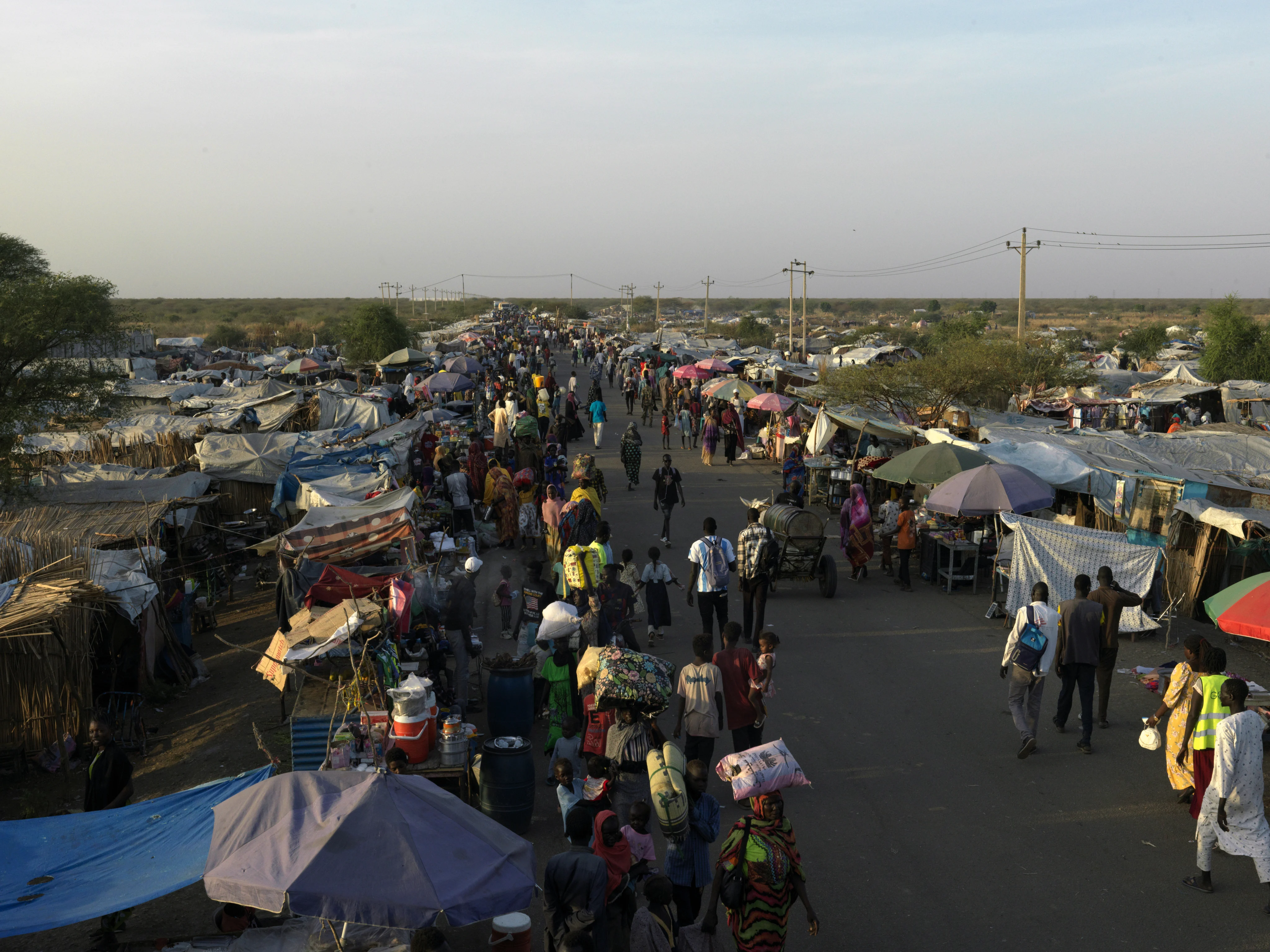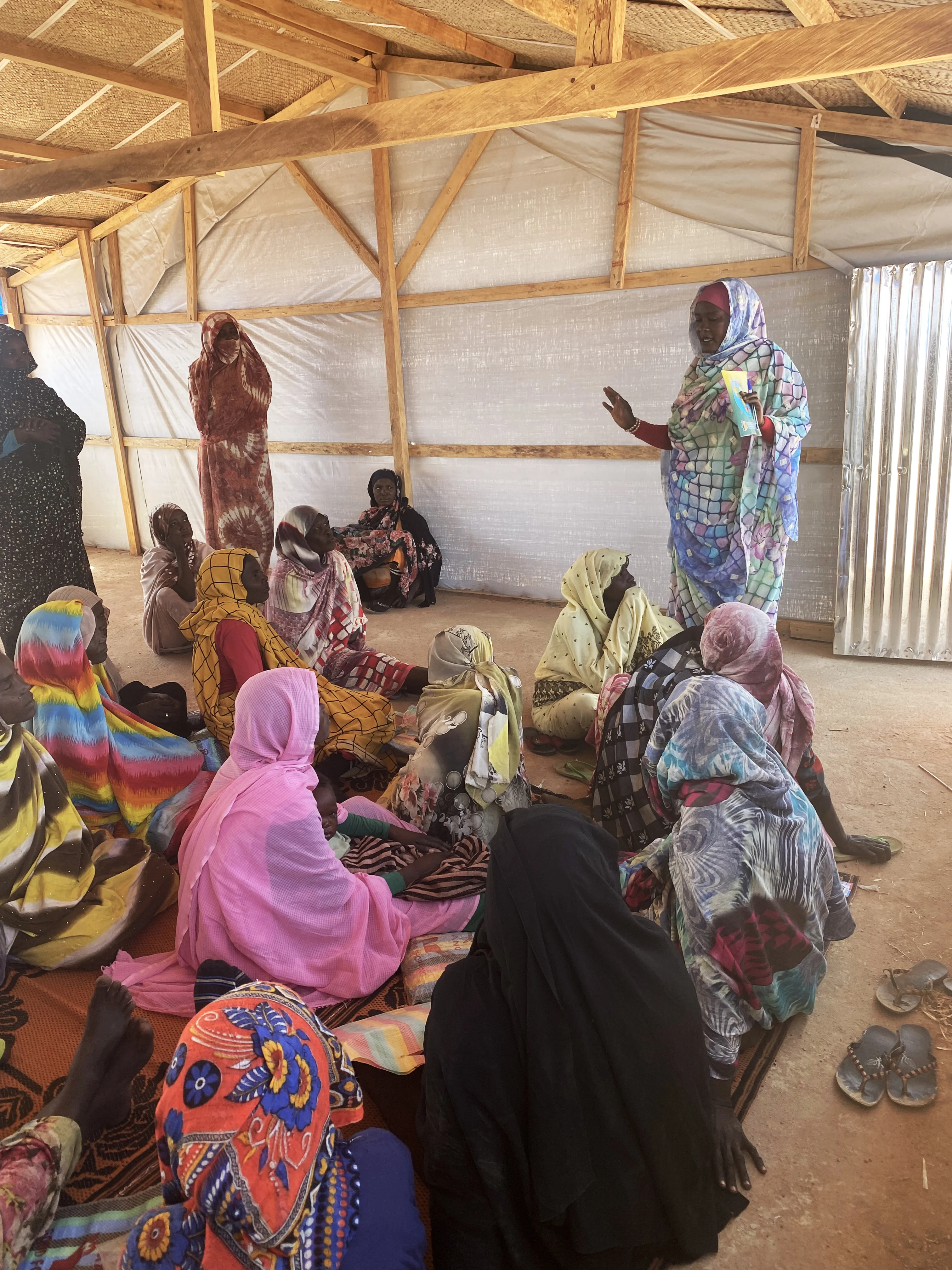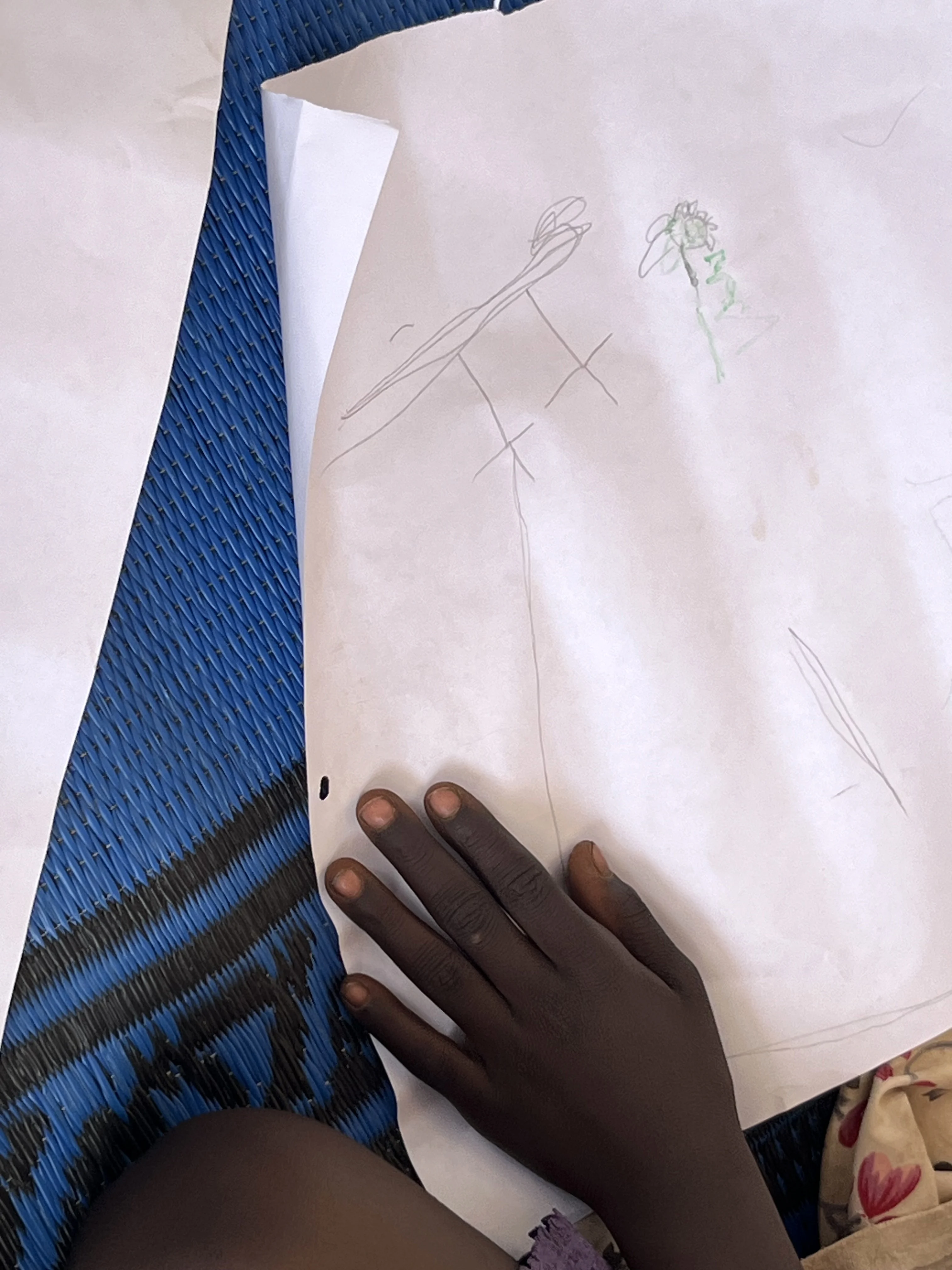Between fear and hope – Children of Sudan’s brutal war
After a recent visit to Chad, Dr Unni Krishnan, Plan International’s Global Humanitarian Director, blogs on the brutal impact of the war in Sudan and it’s catastrophic impact on children.

“When gun battles and violent mobs came closing in, I was left with no options,” Aliya* recollects. She fled from her home in Darfur to keep her family safe. It was a decision made in fear.
One year after the conflict erupted between the Sudanese Armed Forces and the Rapid Support Forces on 15 April 2023, Sudan faces one of the fastest unfolding crises globally. Gun battles and violence have displaced nine million people, equivalent to the combined population of Singapore and Qatar, making Sudan the largest displacement crisis worldwide.
By the end of 2023, nearly five million children had been forcibly displaced, including two million from previous crises. In recent days, fighting has escalated in El Fasher region of North Darfur, resulting in additional loss of life and displacement.
Children never start wars, yet they bear the heaviest burden and pay the biggest price.
In Adré, near a nondescript stone which marks the border between Sudan and Chad, Aliya shares her harrowing journey with me.
Aliya and her four young children have been on the move for the past eleven months, seeking refuge in several camps for displaced people and makeshift shelters, before finally crossing into Chad. She looks exhausted, having walked non-stop for 25 days guiding three of her children and carrying Yousef*, her four-month-old son, wrapped in a half-torn cloth sling on her back throughout the long journey.
They walked only at night to avoid the scorching heat of the day, despite this her children are severely dehydrated. The day I met Aliya and her children at the border, it was 42 degrees Celsius.
The UN estimates that 88% of Sudanese refugees who arrived in Chad in the past 13 months are children and women. Children are arriving hungry, dehydrated, malnourished, and sick. I met several Sudanese refugee children who were malnourished and suffering from severe exhaustion, they were too weak to play and spent most of their time sleeping.

The impact of the conflict on children is profound and far reaching.
In Sudan, nearly 700,000 children are suffering from severe acute malnutrition, and 14 million children need aid. Thousands have been killed or injured, and many face grave protection risks. There are reports of children being recruited into armed groups. In Chad, young girls have spoken to Plan International about sexual violence they have experienced or witnessed.
Around 25 million people in Sudan, approximately five times Ireland’s population, need humanitarian assistance. Disease outbreaks are rising due to disrupted public health services. In Sudan, the economy is in decline, with the International Monetary Fund projecting 18.3% GDP contraction in 2024.
Food prices have soared. UN’s World Food Programme warns that staple grain prices are expected to rise to 200 percent above last year, leaving nearly eighteen million people, roughly the population of the Netherlands, facing acute food insecurity.
Of these, 4.9 million people “are on the brink of famine,” experts at the Integrated Food Security Phase Classification initiative warns. The conflict’s expansion into key agricultural regions has exacerbated food insecurity.
A senior UN official been quoted as saying that more than 1,000 people have crossed the border into Adré, on some days, and that 90% of them say they left Sudan due to food insecurity.
Hunger and violence make a deadly combination. While receiving dignity kits, which contain hygiene products and sanitary items, in Abutenge refugee camp in Adré, Sudanese refugee girls share their experiences of brutal sexual violence. UN experts express alarm about the widespread use of gender-based violence, including sexual violence, as a tool of war to subjugate, terrorise, break and punish women and girls.
Only 12% of the US$ 2.7 billion being sought for Sudan by the UN and humanitarian agencies has been raised. Immediate action is crucial to alleviate this unprecedented crisis. Donors need to contribute more. The world needs to be more compassionate to children of Sudan’s brutal war. There is no suffering left in hell; it is all in the daily lives and young minds of children in war and conflict zones.

Chad – a relative comfort zone for refugees, amidst enduring hardship.
The suffering triggered by this brutal war is felt far beyond Sudan’s borders. 1.8 million people have sought refuge in neighbouring countries like the Central African Republic, Chad, Egypt, Ethiopia, South Sudan and Uganda in the past 13 months. Chad alone received 592,000 people from Sudan in the past 12 months.
Aliya tells me that two of her children scream non-stop and wake up in their sleep, often hugging her hard. They have painful memories of witnessing terrible things no child should see. Back home in Darfur, four of Aliya’s family members were shot and killed by armed men. Her children have nightmares about gunshots and the killings they witnessed.
With the trauma they have faced haunting them in their sleep, a cocktail of unkind weather and hunger adds to the children’s suffering.
People in Chad and local authorities have received Sudanese refugees with open arms and open minds. Chad was already hosting over 500,000 Sudanese refugees from previous conflicts. There is only so much local communities can do in a place already under pressure for vital services.
Refugees have lost everything. Aliya recently heard that her house was burnt to ashes. Her only possessions now are two sets of clothes, her four young children, and painful memories.
While in Chad, refugees often spend long hours walking in search of food and water. In Chad, young women refugees say their daily struggle for food means hours of walking every day, increasing their risk of sexual violence.
The expected seasonal rains amplify the risk of disease outbreaks. Time is running out to prevent an already severe humanitarian crisis turning catastrophic. UN officials tell me they expect another 250,000 Sudanese refugees in Chad in the coming months.

Children need to come first.
Everything is needed here - clean water, sanitation, food and nutrition assistance and medical care. People also need cash. Cash and voucher assistance is a type of humanitarian aid that allows people to buy goods and services for themselves, based on their own needs and preferences, providing the flexibility that is needed in dynamic emergency settings.
Most importantly, such an approach ensures the dignity of crisis affected people by giving them choices. Cash and vouchers assistance is emerging as a preferred form of humanitarian assistance. The State of the World’s Cash 2023 report says that in 2022, US$ 7.9 billion was transferred as cash or vouchers to crisis affected people, marking 21% of the international humanitarian assistance, globally.
Supporting children who have witnessed horror, who are out of school or missing their education, who have lost their parents or been separated from friends and families and are at high risk is the first step.
Plan International and our local partner organisations are running learning and recreational activities to support children. In temporary learning places, children learn the alphabet and arithmetic, benefitting from a safe and supportive environment and the opportunity to continue their education and develop essentials skills.
In child-friendly spaces, children play and practise art, techniques to help distract them from painful memories and process traumatic experiences. There is only so much young minds can take.
Temporary learning places and child friendly spaces are sanctuaries where children can heal, cope, and rediscover hope. These safe havens offer the invaluable gift of allowing a child to be simply a child.
In a child-friendly space in Adré, with a tiny smile on her face, four-year-old Lamia* is putting her best effort into drawing a kite. Children in another conflict zone once told me that kites rise against the wind, not with it - a simple truth that applies to kites and to the lives of refugee children trying to beat the odds.
“I come to the child-friendly space to forget the killing I witnessed back home,” said Zenab* who at just seven years old registers the importance of safe play spaces for children who are survivors of wars and conflicts.
Her friends say she was a quiet and shy child when she first came to the play centre. They have witnessed her becoming bolder and more talkative, Zenab has even started making plans for her future telling me she wants to be a doctor to help children. A decision made in hope.
Some decisions are made in fear. Some decisions are made in hope. For Sudanese children, life is often the journey between fear and hope.
*Names have been changed to protect identities


